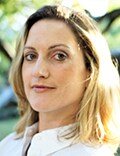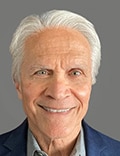Editor’s note: Find the latest COVID-19 news and guidance in Medscape’s Coronavirus Resource Center.
For Carlos Soriano, MD, news of the novel COVID-19 began as a whisper.

Dr Carlos Soriano
In the early winter of 2019, patients at NewYork-Presbyterian Hospital, where he worked as a third-year surgical resident, presented with strange symptoms. Doctors in his hospital and those nearby puzzled over these viral patients’ rapid decline.
At the end of February, the hospital announced they were indefinitely postponing elective surgeries. Alarmed, Soriano bought a few weeks’ groceries and supplies for the 550-square-foot apartment he shared with his boyfriend.
Two weeks later, the outbreak gripped New York City. The city, the country, then the world shut down.
Soriano’s chief resident sent him and his fellow surgical residents home, instructing that they come in on an as-needed basis. Without a normal caseload of elective surgeries, their workload shifted, and the administration wanted to ensure that they maintained a reserve of healthy doctors in case they had to be called into the ICU should an emergent surgical patient come in.
Soriano and his boyfriend found themselves at home together for days at a time — something that had never happened before.
With a marketing position that could be performed from anywhere, his boyfriend simply made his home his office. Soriano went to and from the hospital throughout the week, but otherwise lost the time to himself he was used to having. It felt like a long slumber party. They made drinks and played games. They cooked; they baked. They spent the days calling friends and celebrating birthdays over Zoom. They binge-watched Tiger King.
But as it became more obvious that the COVID outbreak was not fleeting, pressure mounted in their household, like so many others.
For the first time in three-and-a-half years of sharing their apartment, the space began to feel small. His boyfriend didn’t leave it for months. As Soriano was still required to go to the hospital anyway, he did their shopping and ran their errands — there was no sense in increasing their exposure.
Like many other couples, problems that had bubbled under the surface of their relationship began to break through.
“What could have been a time to talk to each other and really communicate about whatever our issues were, we didn’t use that time,” Soriano said. “Because we were now frustrated with each other.”
His boyfriend found it difficult to work when Soriano was there. Soriano found it difficult to decompress from work when his boyfriend was always there working. All the other couples they knew were trapped in similar Catch-22s.
Nonetheless, they made it through the first year of the pandemic as a couple, riding the waves of lockdowns and releases together.
But by the spring of 2021, issues that they’d long swept under the rug became insurmountable: “I think COVID is this big uncontrollable external pressure that happened to everybody, but it definitely magnified a lot of the problems that we already were having.”
His boyfriend moved out and took their dog with him. Soriano joined the ranks of single people in a global pandemic.
“After that, I don’t really know what I felt. I think I repressed it or didn’t let myself feel. I was hollow and empty, like I’d lost a piece of myself,” he said. “Things would affect me that I wouldn’t have batted an eye about before. On the outside, everything looked fine but felt wrong.”
Looking For Love? Look In the Mirror First
To the outside world, it may seem that romance should be easy for those with an MD.
The title alone can be used to solicit suitors — just look at websites like datingadoctor.net and missdoctor.com, designed to connect people with the physician of their dreams.
Doctors mired in the actual day-to-day demands of the job know better. Between the hours at work and on call, and the emotional burdens of the job, it’s not a profession that’s especially conducive to dating.
And COVID — with its added burden for healthcare workers and restrictions on gathering — certainly hasn’t made things any easier.
Many people in healthcare have carried the burden of struggling relationships, or the loneliness of not having one, while also managing more challenging work than ever before. Between dealing with chronically under-resourced hospitals, moral injury, exhaustion, and a tense political atmosphere, doctors have even more weight on their shoulders than normal.
But if you’re a single doctor, looking for love, don’t be discouraged. Instead, Anna Stratis, MD, MSc, CPC, said, turn that look inward.

Dr Anna Stratis
As both a family physician and a relationship and career coach in Toronto, Canada, Stratis has witnessed many fellow doctors struggle with a lost sense of self that makes it difficult to find healthy relationships — not to mention personal happiness. This can be particularly true for doctors at the start of their careers.
“If you’re a physician, you’ve just come out into practice after 15 years of dedicated training, you don’t know what your hobbies are. You’ve never had time to discover who you are,” she said.
“When we are feeling dissatisfied it’s often because our life is out of alignment with our values, and we don’t know what our values are.”
The focus required to make it through medical training can be isolating. To begin overcoming a sense of loneliness, she encourages those who find themselves in this position to be patient and gentle with themselves — especially with the context of COVID in mind. Between the risk of exposing others inside and outside of the hospital, being overworked by the added demand of COVID, and being separated from friends and family (as well as the possibility of meeting new people), it isn’t easy to restore a balanced social life.
Now in his last year of residency, Soriano found himself looking more closely at those losses, compounded by his breakup last spring.
“You spend a decade of your life after high school dedicating yourself to this huge time-consuming thing. And along the way, it’s easy to drop a hobby here, drop a hobby there, you miss holidays, you miss birthdays, you miss big life events,” he said. “And honestly, this had been my most serious relationship to date. So I didn’t really know how to deal with it. And on top of that, I — in retrospect and after a lot of reflection — was really also very burnt out.”
Doctors Should Avoid the Romantic ‘Waiting Game’
According to Wayne Sotile, PhD, these phenomena are related.
As founder of the Center for Physician Resilience in Davidson, North Carolina, and co-author of The Thriving Physician, Sotile has spent more than 40 years counseling physicians.

Dr Wayne Sotile
“The bane of well-being for physicians and for their relationships is the ‘wait until’ mentality,” he said.
He describes this as the habit of waiting for the next career step to prioritize other vitally important aspects of a well-rounded life. While fixated on what’s required of them professionally at their current stage and what the future might hold, physicians often risk missing out on life outside of the hospital. Even when they do have time off, the work can continue to be so mentally consuming, that it’s difficult to achieve real presence. This can both prevent the possibility of cultivating fulfilling relationships and perpetuate feelings of burnout, and the two entangle in a vicious cycle.
Sotile said it doesn’t have to be that way. And no matter where you are in your career — whether you’re a broke resident or an attending with more money but less time — there are practices that can make everything in life more satisfying.
Rather than wait for the appearance of a mythical balanced life, Sotile said the value of a mindfulness practice begins right now.
“It’s about a bunch of small chunks of experience, usually in a bunch of small chunks of time, that occur regularly, that create a pause in my upwardly moving stress graph [when I can] regather, reconnect with myself, be more mindful, be more intentional about my next step,” he said. “Then I can engage in a way that is gratifying.”
Sotile suggests informing your practice by meditating on three fundamental questions: Who are you? What is the situation you find yourself in? And what should a person like you do in this situation, given how you answered the first question?
Of course, he’s not looking for simple answers, particularly to the question of who you are. He suggests digging deeper.
“What are your deepest passions, interests, goals? What are your deepest values? What are your skills, strengths, aspirations, challenges?” He said not only to answer these questions but also to challenge the answers you provide until they have real meaning. “Don’t accept the first three answers, keep going.”
In his research, Sotile has cited mindfulness-based practices as an effective intervention for curbing burnout and finding more satisfaction inside of work and out.
“It leads to people, formally or informally, answering those kinds of questions,” he said.
“In so doing, we get people to start functioning with more emotional intelligence, more insight, and more self-regulation. And those things are very important if we’re also going to be able to better partner with other people.”
Working with physicians and being one, Stratis knows that well-being and the propensity for fruitful relationships require knowing yourself as more than a doctor.
“Unlike what they groomed us to believe, we can’t seek our sense of identity through our job and through our patients. It sounds so shocking, but our health comes from stepping back and putting an arm’s length distance between us and our work and our patients,” she said. “Part of my work is to say, how do we make this just a job?”
That’s not easy for everyone. And for doctors who feel too deeply involved in their patients’ lives to live for themselves, she said it may be time to seek help.
“Follow the advice that we give our patients,” she said. “Go on a directory of coaches or therapists, shortlist seven people, contact all of them. And then release yourself to the expertise of the person you chose and help them to help you.”
Busy doctors might cite, again, a shortage of time for this important internal work. If that’s the case, Stratis suggests evaluating what in your life — at work and at home — could be outsourced to someone else.
This, in itself, is an important step. The dynamic of medical training carries such heavy lessons of personal responsibility, she said, that physicians can be disinclined to delegate tasks. But in order to have a healthy relationship with yourself that creates room for a healthy relationship with a partner, this too must be learned.
“A lot of the time, physicians, we are terrible at micromanaging. We’re terrible at doing tasks that actually we can outsource to somebody else, and we should be empowering people to do stuff and releasing control. We’re such control freaks,” she said.
The duality of Stratis’s career makes it possible for her to challenge her clients’ beliefs about themselves and their lifestyles. Often that’s exactly what they need. She encourages fellow doctors to find someone who will help them do the same.
“Pick somebody you trust, then you can hear the things that nobody else would have the guts to tell you,” she said.
Medicine: It’s What You Do, Not Who You Are
On the other side of his breakup, Soriano went directly to the source to investigate how he was showing up in his relationship. He asked his boyfriend what he needed from him that he didn’t get.
“I need to be more vulnerable with people,” he said. “I am the king of being there for people and present for them without giving too much of myself.”
According to Sotile, this too is a quality that’s reinforced by medical training.
“One of our inherent challenges is that both men and women in medicine, before you get an MD or a DO, you get a PhD that goes unrecognized. You get a PhD in the masculine code,” he said. “You learn to be tough, invulnerable, you learn to be competitive, you learn to just keep going. And that is the biggest challenge to well-being because it creates isolation and creates a disconnection from other people.”
This results, he said, in surrogate self-care, meaning that many doctors only nurture themselves when it’s to the benefit of someone else in need.
“The primary challenge is the challenge of honoring and really doing something about the need to create many experiences of nurturing, engaging in healthy pleasures, and in that way re-energizing oneself,” Sotile said.
Soriano wants to grow from that insight in future relationships.
And as he’s continued to heal and move forward, he reimmersed himself in the company of family and friends — people who’d always helped him connect with a sense of self. Even when COVID protocols meant he couldn’t be in their physical company, he connected to them via FaceTime or Zoom.
He’s entered the dating scene more fully realized as himself — a person apart from a job title. And although he never leads by introducing himself as a physician, he does provide context in advance of a date: His job has certain demands. If he must leave early to scrub in for surgery, he is genuinely sorry, but it’s simply a part of his role at this stage. He gives potential suitors this information upfront so that they can determine for themselves whether it’s an issue. In this way, he’s first and foremost considerate. Secondarily, he’s a surgeon.
For Soriano, the last 2 years involved a lot of learning, as much about himself as anything. And now he’s mindfully taking those lessons forward.
“The takeaway for me has been that medicine is just a career. It’s what you do. It’s not who you are,” he said. “You don’t need to postpone living your life the way you want to until the end of it, because there’s always going to be another reason to put it off.”
For more news, follow Medscape on Facebook, Twitter, Instagram, and YouTube.

